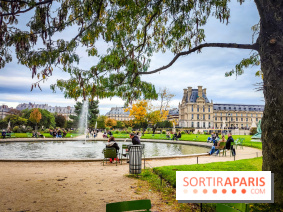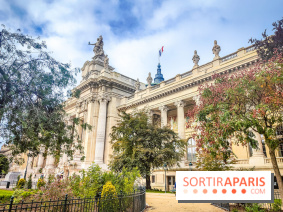Here's a free exhibition that promises a fine history lesson.The Archives nationales are pulling old manuscripts and illustrations out of their drawers for a fine presentation of the police of the Enlightenment, during the reign of Louis XV, in France and Europe.
Although Paris had a police lieutenant as early as 1667, it would take a few more decades for European kingdoms to make the police one of the main forms of city government. Some of those responsible forpublic order proclaimed that policing was a "science of happiness", designed to ensure the "felicity of men in society".
But Enlightenment thinkers and philosophers were quick to question the way the police functioned. Characters such as Rousseau, Diderot and Sade had problems with the forces of law and order, and set out to "improve" the police in their writings and debates.
Whereas in the past, police functions were left to petty officers who were rarely professionals, in the 18th century the idea was born of creating professions linked to the maintenance of order and security in cities. And in those days, security wasn't just a matter of controlling violence: in Paris and France, order came above all from controlling work and... the price of wheat and bread. In 1725, riots broke out in Paris against the bakers, who had raised their prices indecently, and the police had to intervene to monitor the capital's wheat supply in order to prevent scuffles.
In the service of the King, the "gazetins" listened to rumors and reported on changes in public opinion. These policemen even went so far as to track down the authors of satirical songs and reframe workers' insubordination. Other specialized, "fly" policemen had to keep an eye on various "risk groups" such as foreigners, prostitutes, professional gamblers, thieves and religious minorities.
Even back then, stone pelting was not uncommon, and the major riots of May and June 1750 were a reaction to the rapid transformation of the police force. Voices were heard, and the police, particularly in Paris, multiplied their positive achievements towards the population: a nurse's office, public lighting, help for drowning victims...
Through images, newspapers and other archives, the police of the Age of Enlightenment tell their story at the Hôtel de Soubise. Theexhibition is free, so don't hesitate to take a look.
Dates and Opening Time
From September 18, 2020 to October 29, 2020
Location
Archives Nationales - Paris site
60 Rue des Francs Bourgeois
75003 Paris 3
Prices
Free
Official website
www.archives-nationales.culture.gouv.fr
More information
Opening hours: Monday to Friday 10am to 5.30pm, Saturdays and Sundays 2pm to 5.30pm Closed Tuesdays















